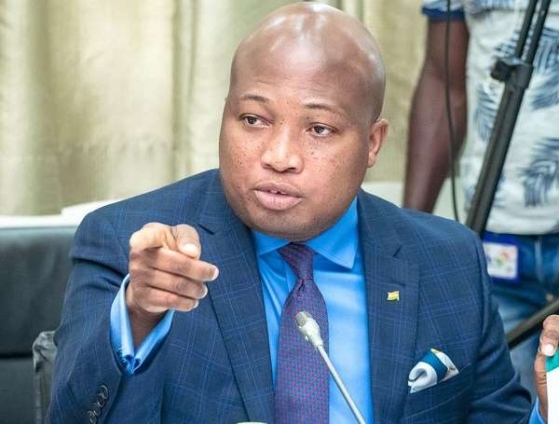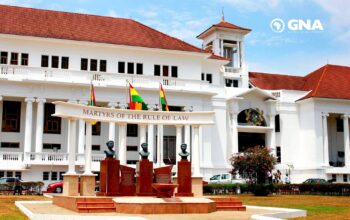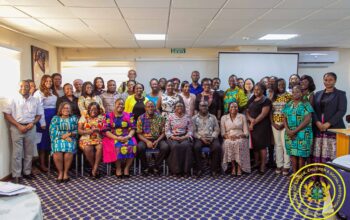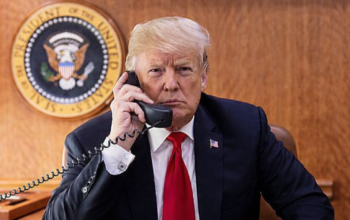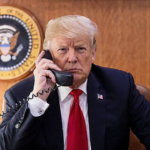Samuel Okudzeto Ablakwa’s reassurance about the impartiality and independence of the anti-corruption committee is a critical step in building public trust in this initiative. His emphasis on avoiding a “witch-hunt” while focusing on evidence-based investigations reflects a commitment to fairness and transparency. This approach is particularly important in ensuring the committee’s credibility and maintaining public confidence in its work.
Ablakwa’s track record in parliament, especially his advocacy for accountability and transparency, lends weight to his assurances. By highlighting his history of relying on evidence and documentation to expose corruption and protect public resources, he sets a clear tone for how the committee intends to approach its mandate.
The public platform he chose to make this statement, Joy FM’s Super Morning Show, is also significant. Engaging with a widely respected media outlet signals the committee’s openness to public scrutiny and its desire to foster citizen engagement. The assurance that the committee will operate independently is crucial in addressing concerns about political interference or bias. By prioritizing evidence and documentation, the committee positions itself as a serious and professional body that will pursue facts rather than unfounded allegations. Ablakwa’s call for the public to trust the committee underscores the importance of citizen confidence in the success of anti-corruption efforts. Drawing on his parliamentary experience, Ablakwa seeks to inspire confidence that the committee’s work will align with established principles of accountability and transparency. Ablakwa’s emphasis on the committee not being driven by “personal vendetta” is a crucial message, especially in an environment where political motivations can sometimes overshadow genuine efforts to combat corruption. By distancing the committee from partisan agendas and focusing on fair, evidence-based investigations, he aims to reassure the public that the goal is to address corruption and strengthen governance, rather than targeting individuals without merit.
This anti-corruption committee being established before Mahama is even sworn in highlights the administration’s immediate priority to tackle corruption, setting the tone for what could be an impactful first step once he officially takes office. It also demonstrates a proactive approach, showing that Mahama is serious about addressing this long-standing issue from day one. The primary function of the committee is to gather evidence, investigate alleged corruption cases, and identify any wrongdoing. Ablakwa’s statement about forwarding the findings to the incoming Attorney-General and the Office of the Special Prosecutor ensures that the investigative process remains within established legal and institutional frameworks. This step is essential to avoid overstepping the committee’s mandate while ensuring that appropriate legal action is taken. By involving the Attorney-General and the Special Prosecutor, the committee aligns itself with existing mechanisms for prosecuting corruption, ensuring that its work is integrated into the broader legal and institutional efforts to tackle graft. Establishing the committee even before Mahama assumes office shows a strong commitment to addressing corruption immediately, signalling that transparency and accountability will be central to his administration. This could strengthen the credibility of Mahama’s leadership, both domestically and internationally. By initiating this process early, the Mahama administration might also use the findings of this committee to inform future governance reforms, particularly in areas prone to corruption. The clarity that the committee is not targeting innocent individuals but rather seeking to investigate real cases of corruption could help ease public scepticism. Transparency in the process and outcomes will be critical in ensuring the initiative garners sustained support from citizens. The timing of this initiative, before Mahama takes office, may be seen by some as politically motivated, especially if the committee investigates cases involving opposition figures. The committee will need to ensure it maintains its impartiality to avoid being viewed as a political tool. While the committee will investigate cases, the real test will be in how effectively it forwards these cases to the Attorney-General and Special Prosecutor. The speed and rigour with which these authorities act will determine whether the committee’s work translates into real consequences. Given that the committee is established by a political leader, ensuring that its work remains independent from political influence will be essential. Strong safeguards need to be in place to ensure that investigations are guided by the evidence, not political agendas.
In sum, the establishment of this anti-corruption committee, particularly in its early stages, could be a transformative move if managed with transparency and diligence. How it handles investigations, works with other legal authorities, and communicates its findings to the public will determine its success in building a foundation of trust for Mahama’s government. The involvement of the Attorney-General and the Office of the Special Prosecutor (OSP) in reviewing the cases forwarded by the committee and pursuing prosecution where necessary is an essential step in ensuring accountability. This process underscores the importance of having well-established legal and institutional frameworks in place to handle corruption cases effectively. The attorney general, as the chief legal officer of the state, will be responsible for ensuring that the findings from the committee are scrutinized by the law. This includes reviewing the legal sufficiency of the evidence, determining whether there are grounds for prosecution, and overseeing the overall legal process. The Attorney-General will also likely coordinate with other institutions to ensure that proper legal protocols are followed and that no corruption cases are overlooked due to procedural issues. The OSP is an independent body tasked with investigating and prosecuting corruption cases. By sending cases to the OSP, the committee ensures that a specialized body focused solely on anti-corruption efforts handles the prosecution. The OSP’s involvement is particularly crucial because it ensures that cases involving high-profile individuals, including politicians and public officials, are prosecuted independently of political influence. This strengthens public trust in the fairness of the system. The committee’s role is to investigate and gather evidence, while the Attorney-General and the OSP are tasked with legal examination and prosecution. This clear division ensures that each body focuses on what it does best, preventing overload and maintaining a streamlined process. By working through established legal mechanisms, the committee strengthens the credibility of Ghana’s anti-corruption efforts. It prevents the committee from overstepping its boundaries and ensures that cases are handled by professionals within the justice system, rather than being dealt with on a political or arbitrary basis. With the cases being passed on to the Attorney-General and OSP, there is a built-in system of checks and balances. If these authorities fail to act on clear cases of corruption, they could face public scrutiny, which encourages diligence and fairness in handling the cases. The public will likely feel more confident in the process if they see that the investigations are being handled independently and within the legal system. Knowing that an independent prosecutor is responsible for pursuing prosecutions will help diminish concerns that the committee’s work could be politically manipulated. Given that the Attorney-General and OSP are part of the government structure, there could be concerns about political influence. It will be crucial for both bodies to demonstrate independence in pursuing prosecutions, especially in high-profile cases involving political figures or government officials. Prolonged delays in processing and prosecuting cases could lead to public frustration and a perception that the system is not truly committed to tackling corruption. Ensuring the legal authorities act swiftly and transparently will be key to maintaining momentum. The Attorney-General and OSP must have the capacity to handle a potentially large volume of cases. This means adequate staffing, training, and resources must be allocated to ensure they can effectively manage the cases passed on by the anti-corruption committee. Regular updates from the Attorney-General and OSP on the status of the cases can help keep the public informed and demonstrate that action is being taken. Public hearings, press releases, and media coverage of the committee’s findings (where appropriate) can increase transparency and show that the authorities are genuinely addressing the issues raised. For the system to work effectively, individuals who provide information or evidence to the committee must be assured of their protection against retaliation. Legal provisions should be in place to safeguard whistleblowers. If the OSP is to carry the weight of investigating and prosecuting corruption, it should be adequately resourced. This might include hiring more investigators, ensuring they have access to forensic tools, and creating a robust legal team capable of handling complex cases.
In conclusion, while the involvement of the Attorney-General and OSP in prosecuting corruption cases adds an important layer of accountability, success will depend on maintaining the independence and efficiency of these institutions. By reinforcing their capabilities and ensuring transparency at every step, Ghana’s anti-corruption framework can send a powerful message that fighting corruption is a top priority.
